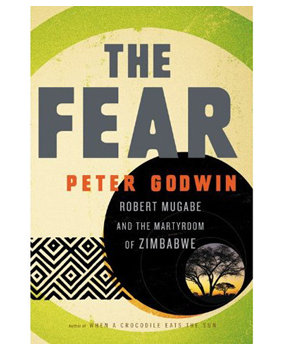Reading Questions for The Fear: Robert Mugabe and the Martyrdom of Zimbabwe

Warning: May contain spoilers
Questions and Topics for Discussion
1. In the prologue of the book, Peter Godwin asks his mother, now living in London, where she'd like to be buried. She replies, "At home. In Africa. Next to your father." What do you think of her determination?
2. Godwin compares Mugabe with Robespierre, a figure in the French Revolution who was instrumental in the Reign of Terror. How would you compare Mugabe's "revolution" in Zimbabwe with the famously bloody revolution in France?
3. Over the course of Mugabe's long tenure, Zimbabwe has gone from a land of plenty to one where destitution and disease run rampant. What factors led to this situation? How do you imagine things could have gone differently in Zimbabwe?
4. Godwin returns to Zimbabwe and finds a country he no longer recognizes as home. How are the ideas of homeland and belonging woven into the book?
5. Foreign journalists had been banned from entering Zimbabwe, and yet Godwin and his sister Georgina return anyway. Is their act of defiance justified or reckless? Would you have done the same, in their shoes?
6. Do journalists have a responsibility to put themselves in personal and/or professional danger to uncover and disseminate the truth?
7. Godwin speaks with several white farmers—brave holdouts in a dwindling population that has been largely persecuted and evicted. What keeps them there?
8. Roy Bennett is a champion of the black community in Chimanimani who was voted into the parliament by the people and then forced off his farm and into exile by Mugabe. What power can political figures wield differently living in exile than from within the state?
9. Godwin visits the hospitalized victims of Mugabe's political crackdown. Why do you think he chooses to repeat their stories here?
10. Georgina visits the mahogany tree she planted to mark the birth of her daughter, Xanthe. What is the significance of "putting down roots" in this story? Will Xanthe will be able to visit her tree again?



